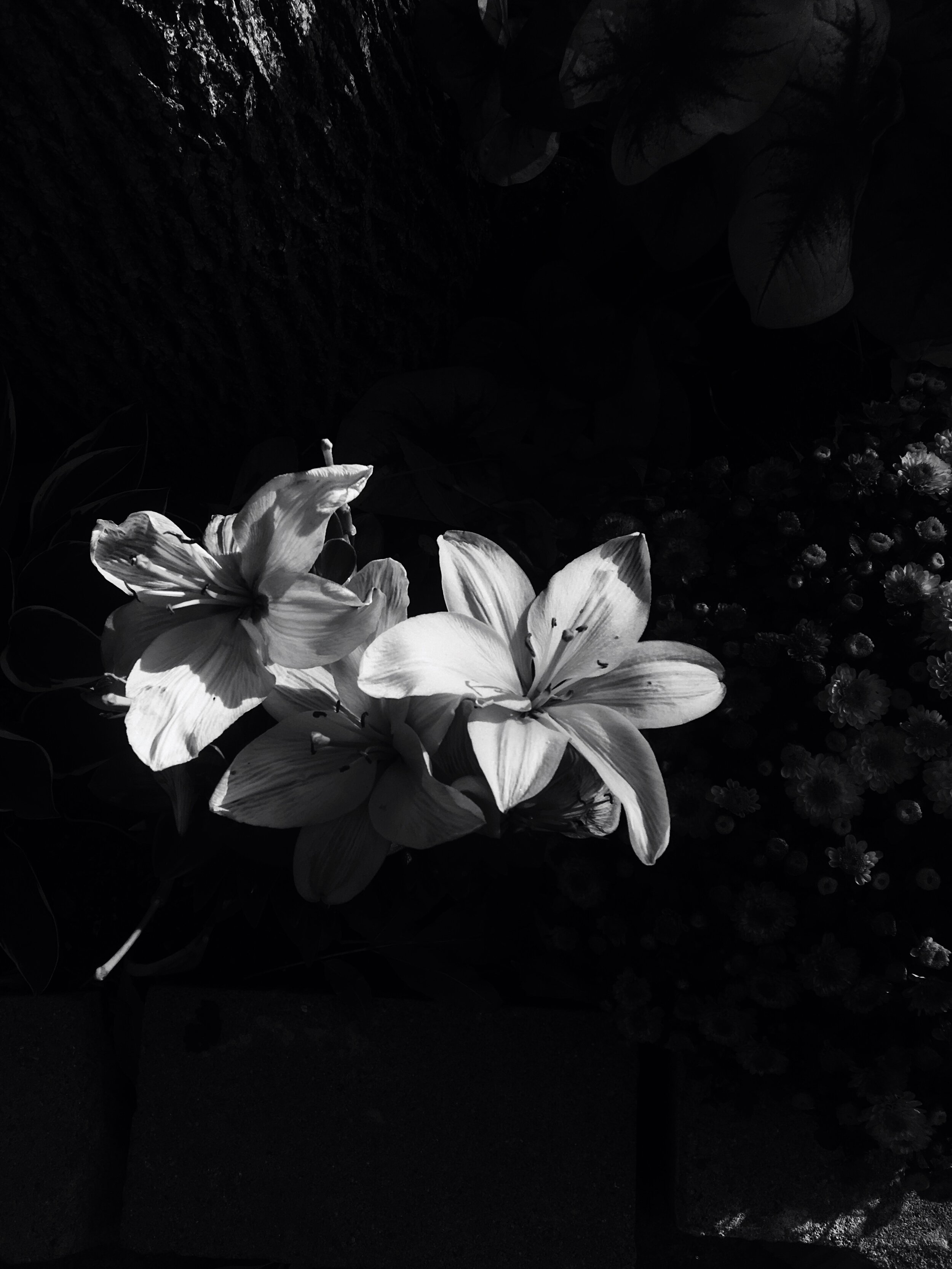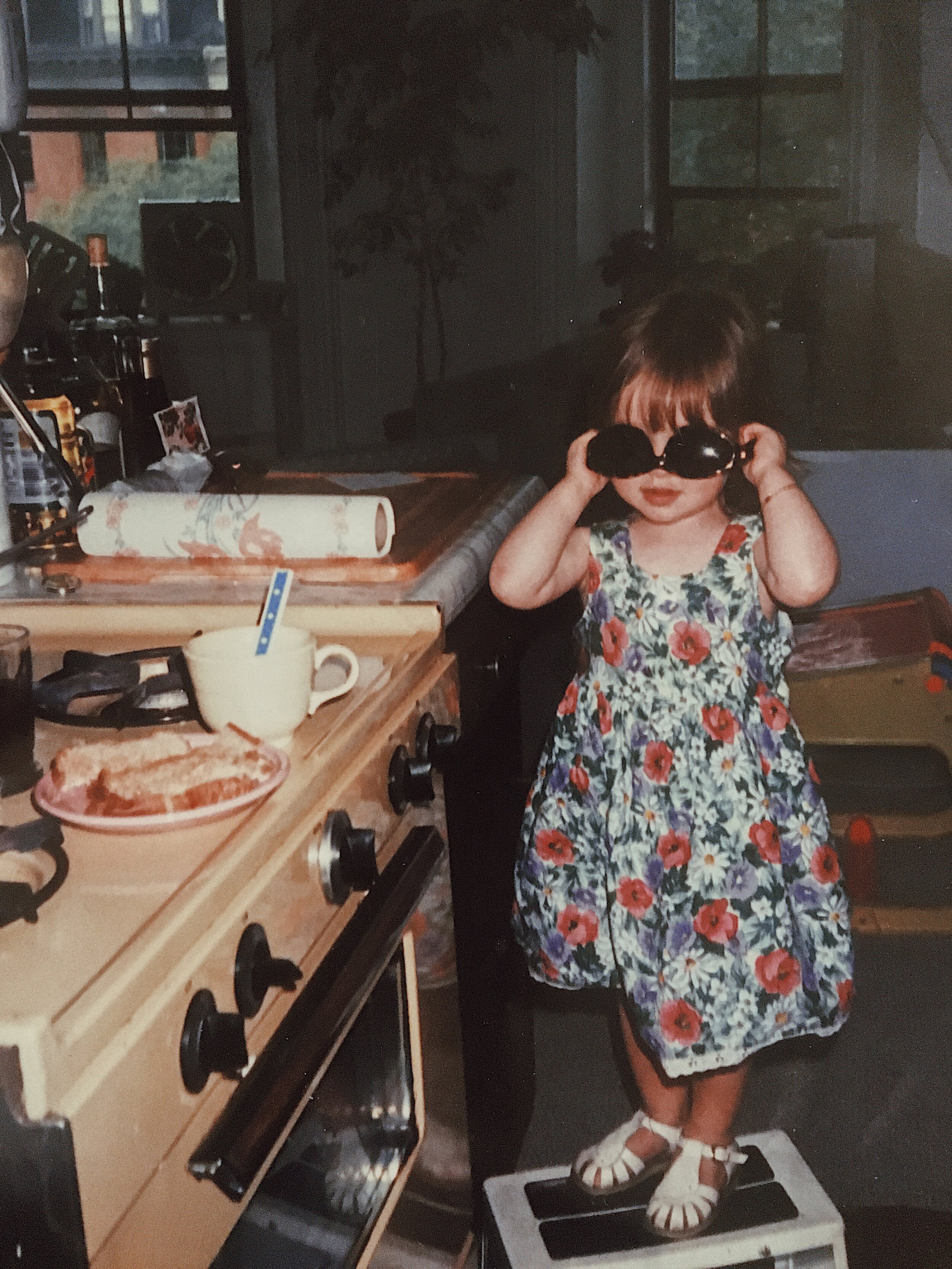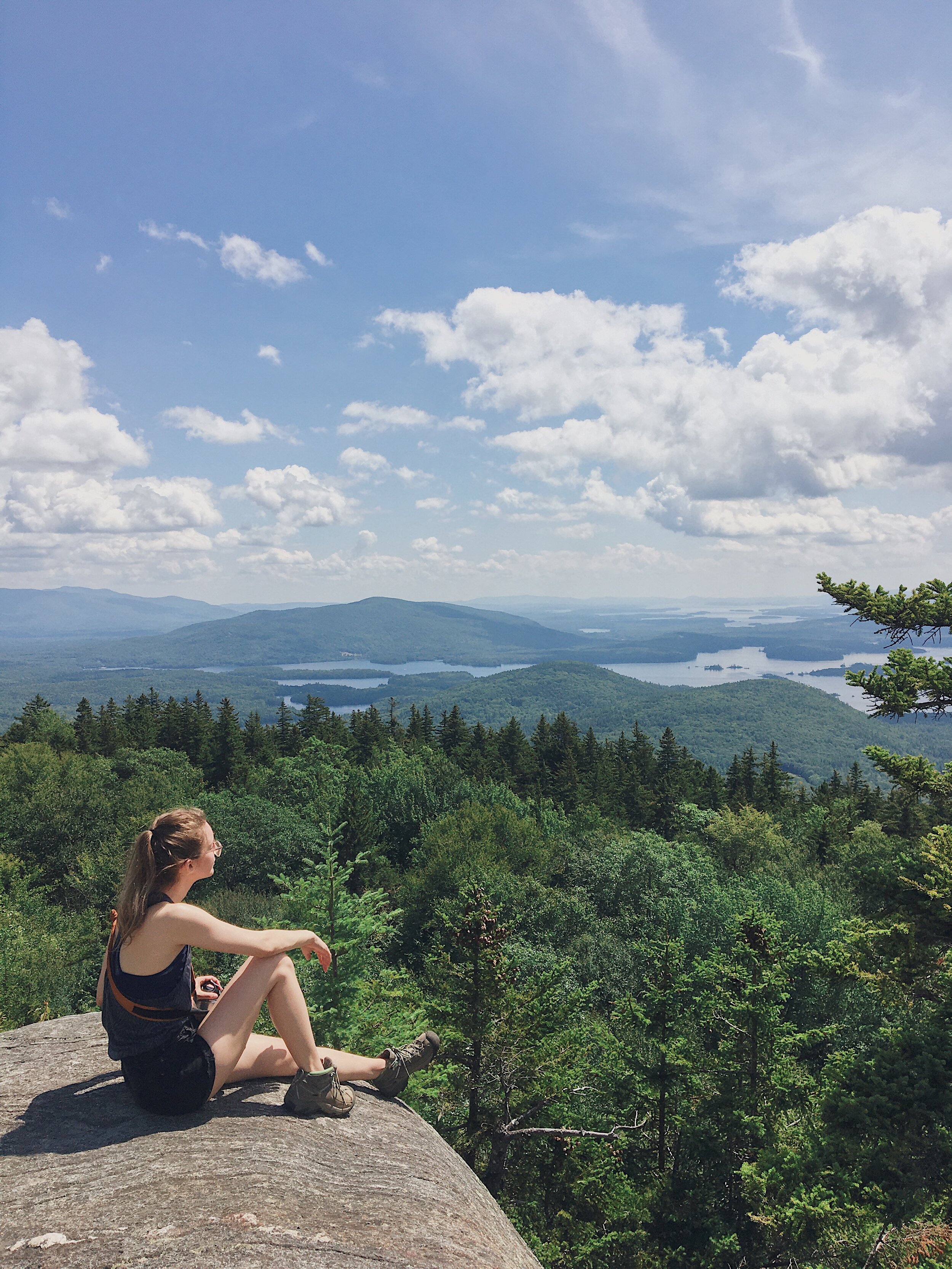A morning tea ritual from my pre-pandemic apartment, which I miss dearly.
Lately, I have been rereading this poem by Leila Chatti. It begins:
“Five times a day, I make tea. I do this
because I like the warmth in my hands, like the feeling
of self-directed kindness. I’m not used to it—
warmth and kindness, both—so I create my own
when I can. It’s easy. You just pour
water into a kettle and turn the knob and listen
for the scream. I do this
five times a day.”
I am also a tea drinker, and I like making it for the reasons Chatti lists. For me, it also signals a moment to rest, to slowly sip, to inhale the fragrant steam and let it clear out my head. I am, in general, a creature of ritual: I wake up and write three longhand pages, an exercise courtesy of Julia Cameron. I eat the same thing for breakfast most days (a loaded bowl of oatmeal), I take the same loop around the neighborhood on a walk. And yes, I make tea — in the morning, in the afternoon, before bed, each time of day with a particular tea attached to it. Rituals keep me grounded, act as anchors, especially in this year when anchors are scant and elusive.
Sometime in October, feeling unmoored and disheartened (I’m still jobless and without permanent housing thanks to the pandemic), I decided to commit to a short-term, focused kind of routine: I would write one song every day of November. I hoped it would give me structure, a solid goal each day. Where my bigger problems felt out of my hands, there seemed to be a clear method to reaching this goal: I just had to sit down and write, every day.
Simple, I thought. Like boiling water for tea.
The first week of the month felt like stretching into a new skin. I got up a little earlier than usual each morning, had breakfast, and then sat down with a guitar and notebook. I got lucky in those first days, the songs flowing like water. I often finished before dark, so it felt somehow like a real job, with office hours. In, out, done. Satisfying.
That feeling lasted for a while longer. Then the days started to coagulate, hard to get through. Some days a single verse took hours to finish, or Brooklyn noise would bleed into every recording take. The physical symptoms of my anxiety started to creep up — causing strange aches and pains, making it hard to breathe on a simple walk. (Not a great feeling during a respiratory pandemic.) On top of it all, the waning daylight and the looming end of the year provoked a deep dread in me. The calendar seemed to be taunting me for how little I had done to change my situation.
I think part of why I love rituals so much is because my life circumstances have forced me to become adaptable. I’m a kid of divorce who bounced between two houses for a decade; a jack-of-all-trades who has three times lost jobs to circumstance; a homebody who’s had bad luck keeping roommates who want to stay put. I crave the comfort of stillness because I’ve been thrown into so many kinds of chaos. This means I have quite the toolbox when it comes to crises. So when a song faltered, I looked through old poems and prompts, called friends. Whenever I started to feel stuck in my situation, I indulged in a nostalgic movie or a baking project. When anxiety clamped down on my ribcage, I counted my breaths, inhaled essential oils, took long hot baths in candlelight — all the mechanisms I’ve honed over years of having a disorder.
The point is, I tried quite a lot of things. The songwriting always fluctuated, but my internal turmoil and external symptoms got steadily worse. Instead of feeling good about moving forward in my songwriting, I felt worse and worse about my circumstances and the possibility of getting out of them. By the third week of the month, I was winded at the slightest exertion, gasping for breath even sitting down — which fueled the spiral further. (Yes, I got tested for COVID, yes, I was negative.) Nothing in my toolbox was working.
It wasn’t until a hysterical session with my therapist (short of breath the whole time) that I realized why. I explained to her that I had hit the point where my mental health was keeping me from functioning, that the quick-hit medication I’m prescribed for attacks was pulling double duty too often. She listened carefully, walked me through a few exercises, and asked how I felt after each one. Each time my answer sounded like, “It makes sense, but it’s not actually doing anything for me.” I could feel frustration seeping from me: I wanted her to give me something concrete, to fix the dizzy pounding of my pulse, dispel the misery that seemed stitched to my skin.
She went quiet for a moment, then said, “You know, I use these practices too.” (Practices, she called them. That’s important.) “I use them all the time. When I’m making breakfast, or feeling a little scattered, or talking to my family. I use them in heightened moments, too — but not only then. Because if I only reacted to those moments, without doing the work to minimize them in the first place, I would probably be where you are.”
I thought back over the month as her words sunk in. The things I had been doing — the breathing, baths, and brain hacks — were reactive. Quick fixes, just like the medication I wanted to stop relying on. I would never think of them as practices, because they weren't.
My therapist seemed to read my mind. “It’s important to care for yourself when things are difficult,” she added gently. “But it’s even more important to take that care when they’re not. To make it a practice.”
Further along, Leila Chatti’s poem reads:
“I come from
a people who pray five times a day
and make tea. I admire the way they do
both. How they drop to the ground
wherever they are. Drop
pine nuts and mint sprigs in a glass.
I think to care for the self
is a kind of prayer. It is a gesture
of devotion toward what is not always beloved
or believed.”
I am sure, reading about the nostalgic movies and essential oils, you thought of the term self-care. I have actively avoided using it, here and in life, because to me it’s hard to dissociate from the cultural memes and consumerist slant (“skin care is self-care!”). But caring for the self, as Chatti puts it, feels altogether different. Something slow and full of intention, as familiar as dropping to the ground to pray five times a day. This, I think, is what my therapist meant: the real work is slowing down, creating something that is not just a stopgap, but a practice. Over and over and over.
I have been thinking of the things that bandage me up, that maintain my energy but do nothing to restore it, as caring for myself. I have left little space for the things that repair and renew me. I have been confusing routines for rituals.
“I do not always believe / in myself, or love myself, I am sure / there are times I am bad or gone / or lying,” admits Chatti in the lines after the ones above. I don’t always believe or love myself either. I am least likely to do so in the moments that feel like the walls are caving in: how can I expect to reach into a dry well and still drink? So what is the alternative?
To take the walks, to write the pages, to have the breakfast. To make the tea.
To extend myself that prayer, that kind of kindness, without immediate expectation. To care for myself, always and anyway. Always, and anyway.
Parting notes —
How ‘Treat Yourself’ Became a Capitalist Command (Ester Bloom): a good, thoughtful read on how the act of self-care has become entwined with consumerism in the 21st-century zeitgeist
If you enjoyed these fragments of Leila Chatti’s work, you can learn more about her and buy her books (support artists!) on her site.
I did, with quite a Herculean effort, complete my November songwriting challenge. You can listen to clips of all 30 songs via my Instagram or TikTok.


















